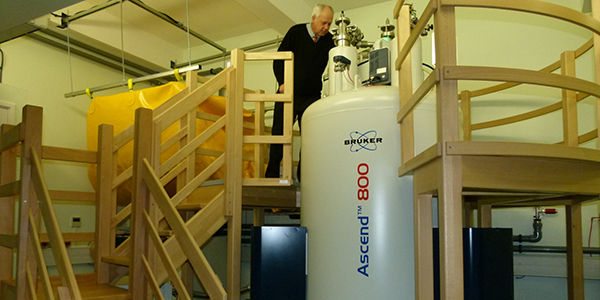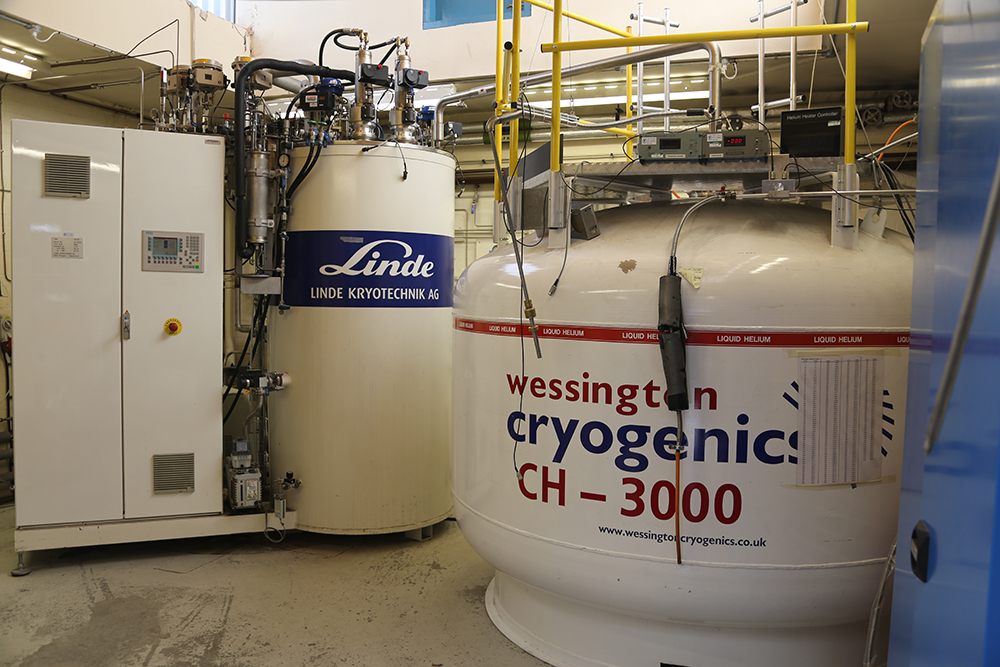
March 20, 2015, by Michael Jennings
Guardian University Award for sustainability project
The University of Nottingham has won the award for best Sustainability Project at the Guardian University Awards 2015.
The Helium Recovery and Recycling Initiative won the Sustainability Project award for increasing the efficiency of energy consumption at the University. At current usage rates Helium reserves are estimated to be exhausted by 2050: a potential disaster for science and medicine, as there are no known substitutes for this material.
‘Recognising a need’
John Middleton, Technical Manager on the project, said: “We are delighted to win the Sustainability Guardian Award category, which recognised the need to recycle a finite and dwindling natural resource. This resource enables research in strategic areas such as MRI imaging, cancer, dementia and epilepsy here at the University.
“Our success is the success of the schools involved and the University as a whole, and I hope the knowledge and experience gained can be transferred to other institutions and situations. The project was made possible by a quick and informed decision by the management board to fund the proposal, which enabled us to become the flagship University for this kind of reclamation. It has been hard work and exasperating at times, but the results are well worth it and I would like to thank everyone concerned.”
Denise Lord, Project Manager, added: “We had a fantastic evening and are excited about raising the profile of Helium as a non-renewable resource. Hopefully this will inspire other institutes and businesses to seriously consider investment into conserving this resource, giving technology the time to discover alternative solutions.”
How is helium recovered?
The ‘Helium Recycling Hub’ encompasses all existing methods of helium recovery, along with some new ideas, into one system.
Helium gas is captured around the University through a network of underground pipework, road trailers, gasbags and compressors, and gas is returned to the helium liquefaction plant where it is re-liquefied and reused.

Reducing the carbon footprint at the University and beyond
Thanks to the initiative, the University can now recover this at an 85%–90% efficiency rate with a purity rate of greater than 99.9%.
This enables the recycling of approximately 30,000 liquid litres of helium (previously lost to atmosphere) from buildings across our campuses, and will reach as far as the new rebuilt Carbon Neutral Laboratory facility. This project will protect all areas of vital low-temperature research here at the University from a shortfall in supply of liquid helium, and demonstrates that sustainability can be cost effective through considerable cost savings.
Jim Reed, Director of Procurement at the University, said: “This award recognises a terrific collaboration between academics and administrative departments, building on a very clever idea developed and tested by our scientists. It was one of the first uses of the University Strategic Investment Funds and was enthusiastically supported by the University Executive Board. This is a very green solution to a genuine crisis in the supply chain.”
‘Protecting finite resources’
The project began in April 2013 and after successful testing, is expected to be completed this month. The members of the team are all volunteers from various schools bringing differing aspects of expertise and knowledge to the project:
Denise Lord, Procurement Category Manager – Project Manager
John Middleton, Physics & Astronomy – Technical Manager and Technical Manager on the project
Chris Pallender, Physics & Astronomy – Liquifier Technician
Dr Huw Williams, Chemistry – NMR Facility Manager
Dr Adrienne Davis, Chemistry – Analytical Services Manager
Kevin Butler, Chemistry Technician – Analytical Services
Andy Nolan, the University’s Director for Sustainability, said: “This is another example of the University’s commitment to sustainability, recognising the importance of protecting the earth’s finite resources. Embedding sustainability into our research in science and engineering is a key objective for the University of Nottingham.”
For the latest updates about sustainability at the University, visit our Sustainability website. For more information about the Guardian University Awards 2015, visit the Guardian website.
No comments yet, fill out a comment to be the first

Leave a Reply